June 1 stands as one of history’s most eventful days, witnessing the rise and fall of empires, groundbreaking discoveries, and moments that shaped our modern world across centuries of human achievement.
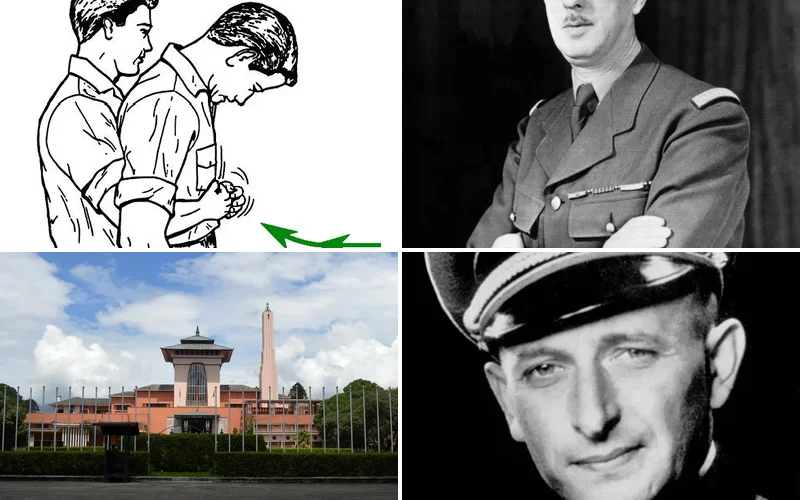
Politics and Government Events on June 1
1914 – Charles de Gaulle Returns to Power

Charles de Gaulle emerged from retirement to lead France by decree for six months during a critical period of political instability. His return marked the beginning of the Fifth Republic and fundamental changes to French governance.
The general’s decisive leadership style would transform France’s political landscape permanently. His constitutional reforms established a stronger presidency that continues to define French democracy today.
1950 – Margaret Chase Smith’s Declaration of Conscience
U.S. Senator Margaret Chase Smith delivered her famous Declaration of Conscience speech, directly challenging Joseph McCarthy’s tactics during the Red Scare. Her courageous stand represented the first major Republican opposition to McCarthyism.
Smith’s speech defended fundamental American principles of due process and individual rights. Her moral leadership helped pave the way for McCarthy’s eventual downfall and restored dignity to political discourse.
1979 – Zimbabwe’s First Black-Led Government
The first black-led government of Rhodesia took power after 90 years of white minority rule. This historic transition marked a crucial step toward Zimbabwe’s independence and the end of colonial governance.
The new government faced enormous challenges rebuilding a nation divided by decades of racial segregation. Their assumption of power represented hope for millions of previously disenfranchised citizens across southern Africa.
2001 – Nepalese Royal Massacre
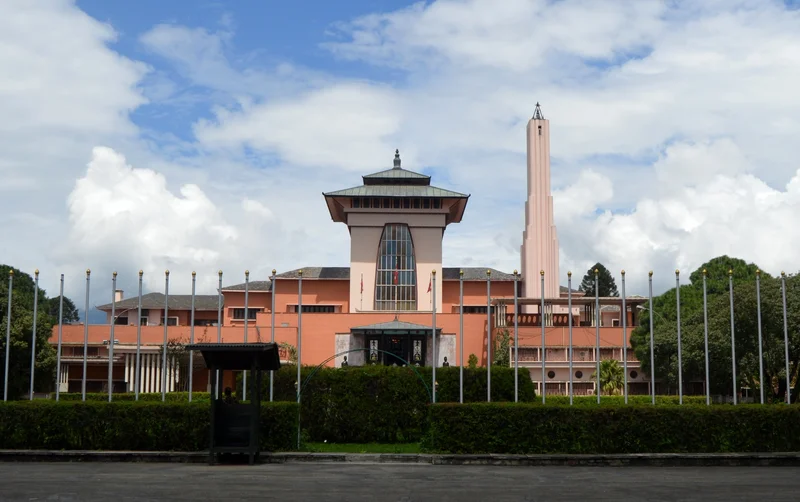
Crown Prince Dipendra of Nepal shocked the world by shooting and killing several members of his family, including his father and mother. This tragic event decimated Nepal’s royal family and plunged the nation into crisis.
The massacre fundamentally altered Nepal’s political landscape and weakened the monarchy’s traditional authority. The incident accelerated the country’s transition toward republican government and democratic reform.
Military and Naval History on June 1
1918 – Battle of Belleau Wood Begins
Allied Forces under John J. Pershing and James Harbord engaged Imperial German Forces in the pivotal Battle of Belleau Wood. This confrontation marked American forces’ first major offensive action in World War I.
The battle demonstrated American military capabilities and marked a turning point in the Western Front campaign. Marine Corps units earned legendary status through their heroic actions in the dense French forest.
1941 – Battle of Crete Concludes
The Battle of Crete ended as the island capitulated to German forces after fierce resistance. This operation represented Germany’s largest airborne assault and demonstrated both the potential and limitations of paratrooper warfare.
The costly German victory proved pyrrhic, as massive casualties among elite airborne units convinced Hitler to abandon future large-scale airborne operations. Allied forces learned valuable lessons about defending against airborne assaults.
1943 – BOAC Flight 777 Shot Down

German Junkers Ju 88s shot down BOAC Flight 777 over the Bay of Biscay, killing British actor Leslie Howard among others. Speculation arose that Germans targeted the flight believing Winston Churchill was aboard.
The incident highlighted the dangers of civilian air travel during wartime and German intelligence operations. Howard’s death deprived Britain of one of its most effective cultural ambassadors during the war.
1993 – Dobrinja Mortar Attack
Thirteen people died and 133 were wounded when Serb mortar shells struck a soccer game in Dobrinja, west of Sarajevo. This attack exemplified the brutal targeting of civilians during the Bosnian War.
The massacre shocked international observers and increased pressure for military intervention in Bosnia. Such attacks on civilian gatherings became tragic symbols of ethnic cleansing campaigns.
Science and Discovery Milestones on June 1
1974 – Heimlich Maneuver Published

The Heimlich maneuver for rescuing choking victims was published in the journal Emergency Medicine, revolutionizing emergency response procedures. Dr. Henry Heimlich’s technique provided a simple, effective method for saving lives.
The procedure quickly became standard first aid training worldwide and has saved countless lives since its introduction. Its simplicity allowed ordinary citizens to perform life-saving interventions without medical training.
1978 – Patent Cooperation Treaty Applications Filed
The first international applications under the Patent Cooperation Treaty were filed, streamlining global patent procedures. This system simplified the process for inventors seeking protection across multiple countries.
The treaty facilitated international innovation by reducing bureaucratic barriers and costs for patent applications. It created a unified system that accelerated technological development and knowledge sharing worldwide.
1939 – Focke-Wulf Fw 190 First Flight
The German Focke-Wulf Fw 190 fighter aircraft completed its maiden flight, introducing revolutionary aviation technology. This aircraft would become one of World War II’s most formidable fighter planes.
The Fw 190’s innovative design features influenced postwar aviation development significantly. Its radial engine configuration and advanced aerodynamics set new standards for military aircraft performance.
Cultural and Arts Events on June 1
1980 – CNN Begins Broadcasting
Cable News Network (CNN) began broadcasting, revolutionizing television news coverage with 24-hour reporting. This innovation fundamentally changed how audiences consumed news and information.
CNN’s continuous coverage model influenced global media practices and created new expectations for immediate news access. The network’s success inspired numerous competitors and transformed journalism practices worldwide.
2008 – Universal Studios Fire
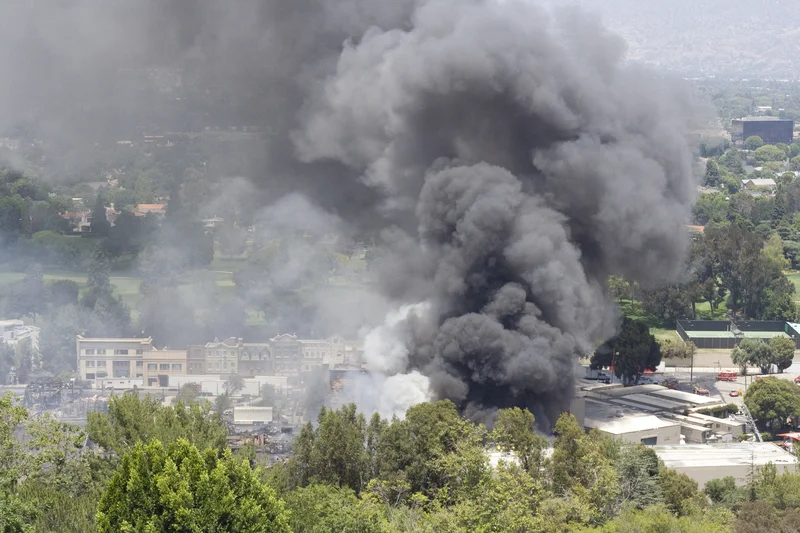
A devastating fire broke out on Universal Studios’ back lot, destroying the King Kong Encounter attraction and a vast archive of master tapes. The full extent of musical and film losses wasn’t revealed until 2019.
The fire represented one of entertainment history’s most significant archival losses, affecting countless artists and productions. The incident highlighted the vulnerability of irreplaceable cultural artifacts and the need for better preservation methods.
1962 – Marilyn Monroe’s Death

Marilyn Monroe, the iconic American model and actress, was born on this date in 1926. Her birth marked the arrival of one of cinema’s most enduring and influential figures.
Monroe’s career would define Hollywood glamour and establish new standards for celebrity culture. Her tragic early death at 36 only enhanced her legendary status in popular culture.
Religious and Social Events on June 1
1941 – The Farhud Begins
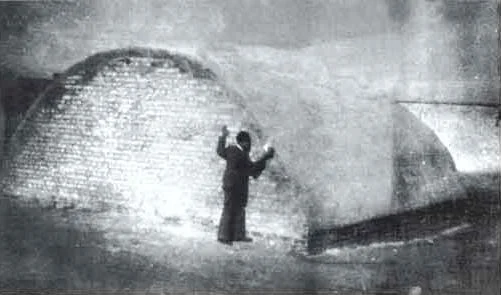
The Farhud, a massive pogrom in Iraq, began, forcing many Iraqi Jews to leave their homes. This violent outbreak marked a turning point in the ancient Jewish community’s relationship with Iraqi society.
The pogrom represented the culmination of rising anti-Jewish sentiment and Nazi influence in the Middle East. These events accelerated Jewish emigration from Iraq and contributed to the broader displacement of Middle Eastern Jewish communities.
1919 – Prohibition Begins in Finland
Prohibition came into force in Finland, reflecting growing temperance movements across Europe and North America. The Finnish government implemented comprehensive alcohol restrictions following successful advocacy campaigns.
The prohibition experiment lasted until 1932, when economic pressures and enforcement difficulties led to its repeal. Finland’s experience paralleled similar movements worldwide and demonstrated the challenges of legislating social behavior.
Business and Economic Events on June 1
1961 – Canadian Bank Merger
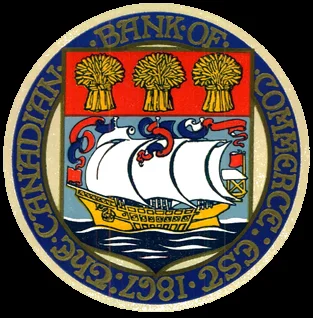
The Canadian Bank of Commerce and Imperial Bank of Canada merged to form the Canadian Imperial Bank of Commerce, creating the largest bank merger in Canadian history. This consolidation reshaped the nation’s financial landscape.
The merger created a financial powerhouse capable of competing internationally and serving Canada’s growing economy. This precedent encouraged further consolidation in the Canadian banking sector.
2009 – General Motors Bankruptcy
General Motors filed for Chapter 11 bankruptcy, marking the fourth largest United States bankruptcy in history. This collapse of an automotive giant shocked the global economy and required massive government intervention.
The bankruptcy represented the end of an era for American manufacturing dominance and traditional automotive industry structure. Government-backed restructuring eventually allowed GM to emerge as a smaller, more competitive company.
1998 – European Central Bank Founded
The European Central Bank was founded in Brussels, establishing the institutional framework for European monetary union. This institution would oversee the euro currency and coordinate monetary policy across member nations.
The ECB’s creation represented a historic step toward European integration and economic cooperation. Its establishment laid the groundwork for the euro’s launch and fundamentally altered global financial systems.
Transportation and Infrastructure on June 1
1930 – Deccan Queen Introduced
The Deccan Queen was introduced as the first intercity train between Bombay VT and Poona to run on electric locomotives. This innovation marked a significant advancement in Indian railway technology and passenger service.
The electric train service demonstrated India’s growing technological capabilities and modernization efforts. The Deccan Queen became a symbol of progress and continues operating as one of India’s premier passenger services.
2011 – Space Shuttle Endeavour’s Final Landing

Space Shuttle Endeavour completed its final landing after 25 flights, concluding a distinguished career in space exploration. This milestone marked the approaching end of America’s Space Shuttle program.
Endeavour’s retirement symbolized the transition from shuttle-based space exploration to new commercial and international partnerships. The orbiter’s legacy includes crucial contributions to International Space Station construction and scientific research.
2009 – Air France Flight 447 Crash

Air France Flight 447 crashed into the Atlantic Ocean off Brazil’s coast during a flight from Rio de Janeiro to Paris, killing all 228 passengers and crew. This tragedy highlighted aviation safety challenges over remote ocean areas.
The crash investigation revealed critical issues with pilot training and aircraft sensor systems. The disaster led to significant improvements in aviation safety protocols and pilot education programs worldwide.
Sports and Recreation on June 1
1965 – Curly Lambeau Dies
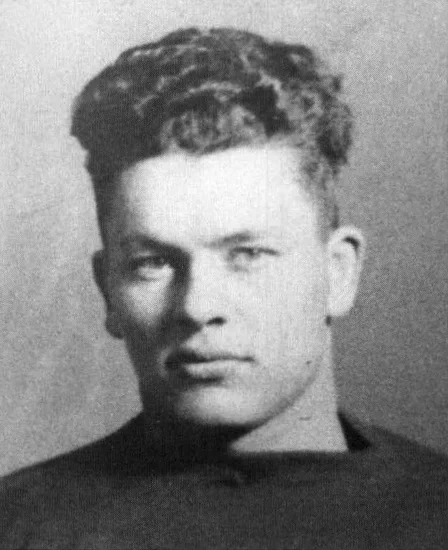
Curly Lambeau, founder of the Green Bay Packers and legendary football coach, died on this date. His death marked the end of an era for professional football and the team he built from nothing.
Lambeau’s innovations in coaching and team management helped establish the National Football League’s credibility and popularity. His legacy continues through the Packers’ sustained success and their historic stadium bearing his name.
1985 – Chiyonofuji Mitsugu Born

Chiyonofuji Mitsugu, the legendary Japanese sumo wrestler, was born on this date in 1955. His birth marked the arrival of one of sumo’s greatest champions and most beloved figures.
Chiyonofuji’s career would span decades and include numerous championship victories that elevated sumo’s international profile. His technical skill and longevity made him a model for aspiring wrestlers worldwide.
1968 – Jason Donovan Born

Jason Donovan, Australian actor and singer, was born on this date. His birth marked the arrival of a future entertainment star who would achieve international recognition.
Donovan’s career would span television, music, and theater, making him one of Australia’s most successful entertainment exports. His work helped establish Australian talent in global entertainment markets.
Notable Births on June 1
1926 – Marilyn Monroe Born

Marilyn Monroe, the iconic American model and actress, was born in Los Angeles, California. Her birth marked the arrival of one of cinema’s most enduring and influential figures.
Monroe’s career would define Hollywood glamour and establish new standards for celebrity culture. Her tragic early death at 36 only enhanced her legendary status in popular culture.
1937 – Morgan Freeman Born
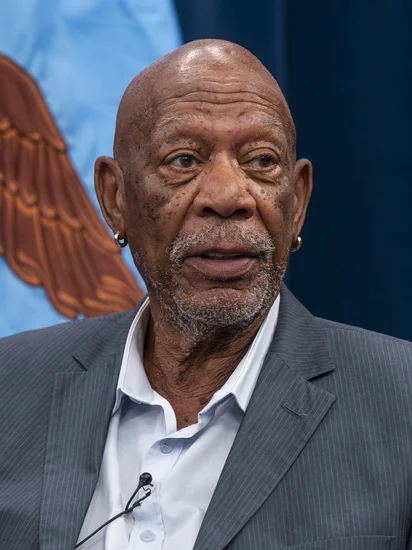
Morgan Freeman, acclaimed American actor and producer, was born in Memphis, Tennessee. His distinctive voice and commanding presence would make him one of Hollywood’s most recognizable performers.
Freeman’s career spans decades and includes numerous Academy Award nominations and wins. His narration work and dramatic performances have made him a beloved figure in American cinema.
1947 – Jonathan Pryce Born

Jonathan Pryce, the distinguished Welsh actor and singer, was born in Holywell, Wales. His theatrical background would lead to international recognition in film and television.
Pryce’s versatility across drama, comedy, and musical theater established him as one of Britain’s finest actors. His performances in both independent and blockbuster films demonstrate remarkable range and skill.
1973 – Heidi Klum Born

Heidi Klum, German-American model and fashion designer, was born in Bergisch Gladbach, Germany. Her birth marked the arrival of a future supermodel and television personality.
Klum’s career expanded beyond modeling to include television hosting, producing, and fashion design. Her entrepreneurial success and media presence made her one of the world’s most recognizable personalities.
1996 – Tom Holland Born

Tom Holland, English actor, was born in Kingston upon Thames, London. His birth marked the arrival of a future Spider-Man and one of his generation’s most promising actors.
Holland’s athletic background and acting training would perfectly prepare him for superhero roles. His portrayal of Spider-Man in multiple Marvel films has made him a global star.
Notable Deaths on June 1
1968 – Helen Keller Dies

Helen Keller, the remarkable American author and activist, died at age 88. Her death marked the end of an extraordinary life that inspired millions despite overwhelming physical challenges.
Keller’s achievements in education and advocacy transformed perceptions of disability and human potential. Her legacy continues through institutions and programs serving blind and deaf communities worldwide.
1962 – Adolf Eichmann Executed

Adolf Eichmann, the Nazi SS officer responsible for organizing the Holocaust, was hanged in Israel for crimes against humanity. His execution marked a significant moment in post-war justice efforts.
Eichmann’s trial brought worldwide attention to Holocaust documentation and survivor testimony. His execution represented symbolic justice for millions of victims and their families.
2008 – Yves Saint Laurent Dies
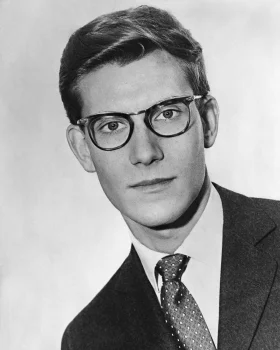
Yves Saint Laurent, the legendary French fashion designer and founder of Saint Laurent Paris, died at age 71. His death marked the end of an era in haute couture and fashion innovation.
Saint Laurent’s designs revolutionized women’s fashion and challenged traditional gender conventions in clothing. His influence on contemporary fashion continues through his brand and countless designers he inspired.
1980 – Arthur Nielsen Dies
Arthur Nielsen, American businessman and founder of the ACNielsen company, died at age 82. His death marked the end of a pioneering career in market research and television audience measurement.
Nielsen’s innovations in statistical sampling and audience measurement revolutionized advertising and broadcasting industries. His methodologies established standards that continue shaping media and marketing practices globally.
1985 – Richard Greene Dies

Richard Greene, English actor and former soldier, died at age 66. His death marked the end of a distinguished career spanning film and television during Hollywood’s golden age.
Greene’s heroic roles in adventure films and his television work as Robin Hood made him a beloved figure. His military service during World War II added authenticity to his later portrayals of heroic characters.
Holidays and Observances on June 1
International Children’s Day
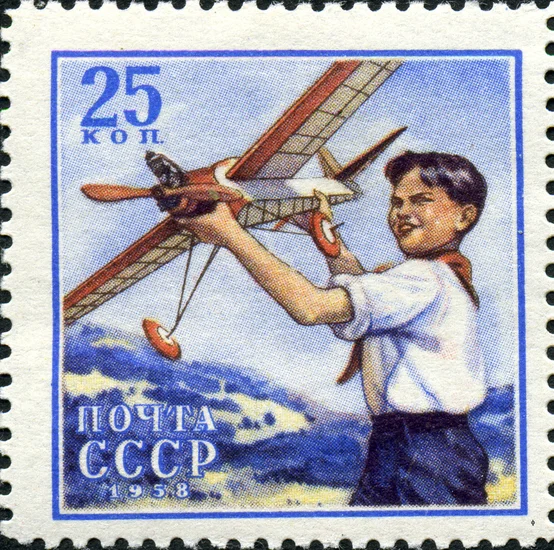
International Children’s Day is celebrated worldwide, promoting children’s welfare and rights. This observance highlights the importance of protecting and nurturing young people globally.
The day encourages governments and organizations to focus on children’s needs and rights. Various countries celebrate with special events, educational programs, and policy discussions about child welfare.
Independence Day Samoa
Samoa celebrates its Independence Day, commemorating independence from New Zealand in 1962. This national holiday marks the Pacific island nation’s sovereignty and cultural identity.
The celebration includes traditional ceremonies, cultural performances, and community gatherings. Samoa’s independence represented a significant milestone in Pacific decolonization movements.
Madaraka Day Kenya
Kenya observes Madaraka Day, celebrating the country’s attainment of internal self-governance. This national holiday commemorates Kenya’s progress toward full independence and democratic governance.
The day features official ceremonies, cultural displays, and reflection on Kenya’s journey to independence. Madaraka Day emphasizes national unity and the ongoing challenges of nation-building.
Pancasila Day Indonesia
Indonesia celebrates Pancasila Day, honoring the five principles that form the foundation of Indonesian national philosophy. This observance reinforces national unity and shared values across the diverse archipelago.
The day includes educational programs about Indonesia’s founding principles and their contemporary relevance. Pancasila Day promotes understanding of Indonesian identity and democratic values.
